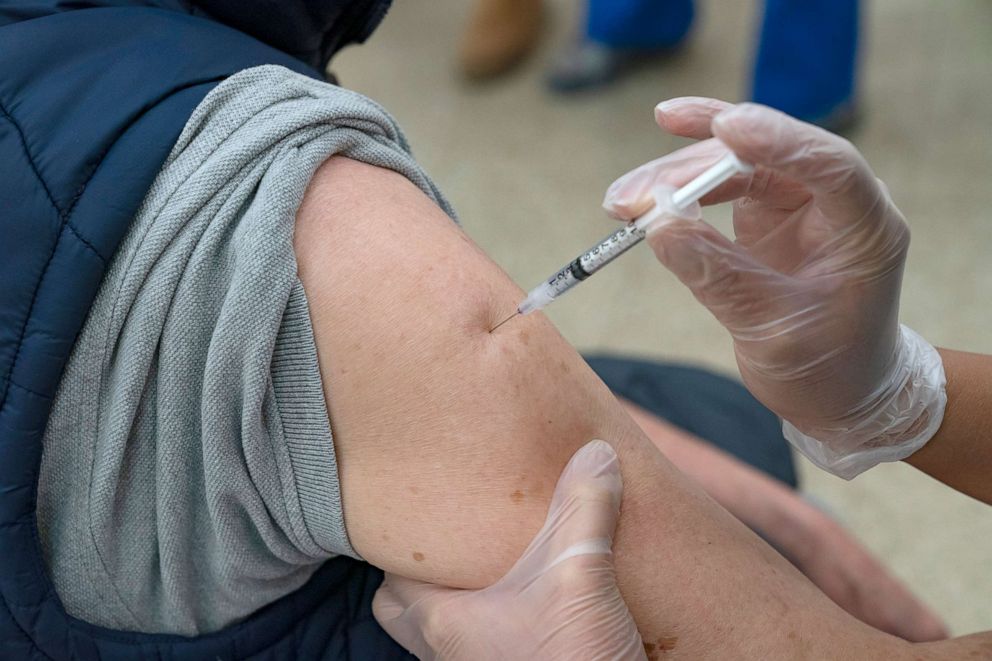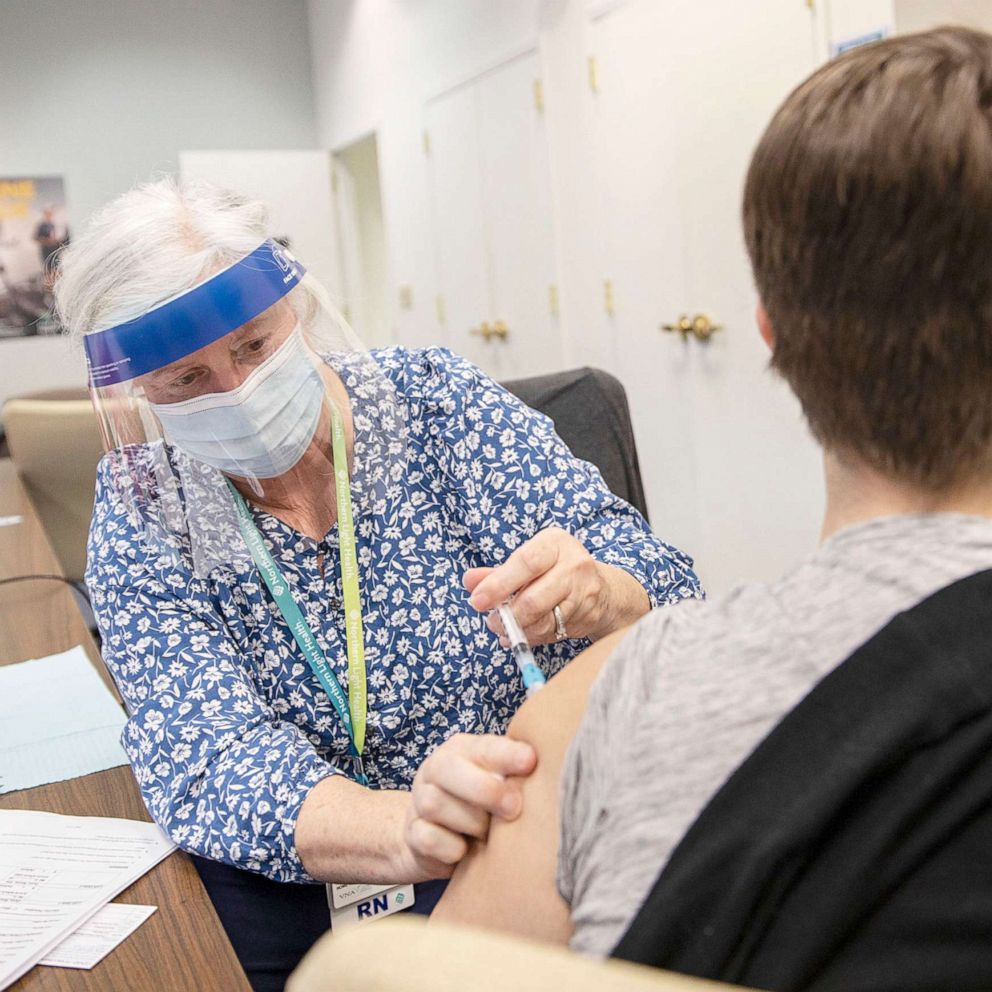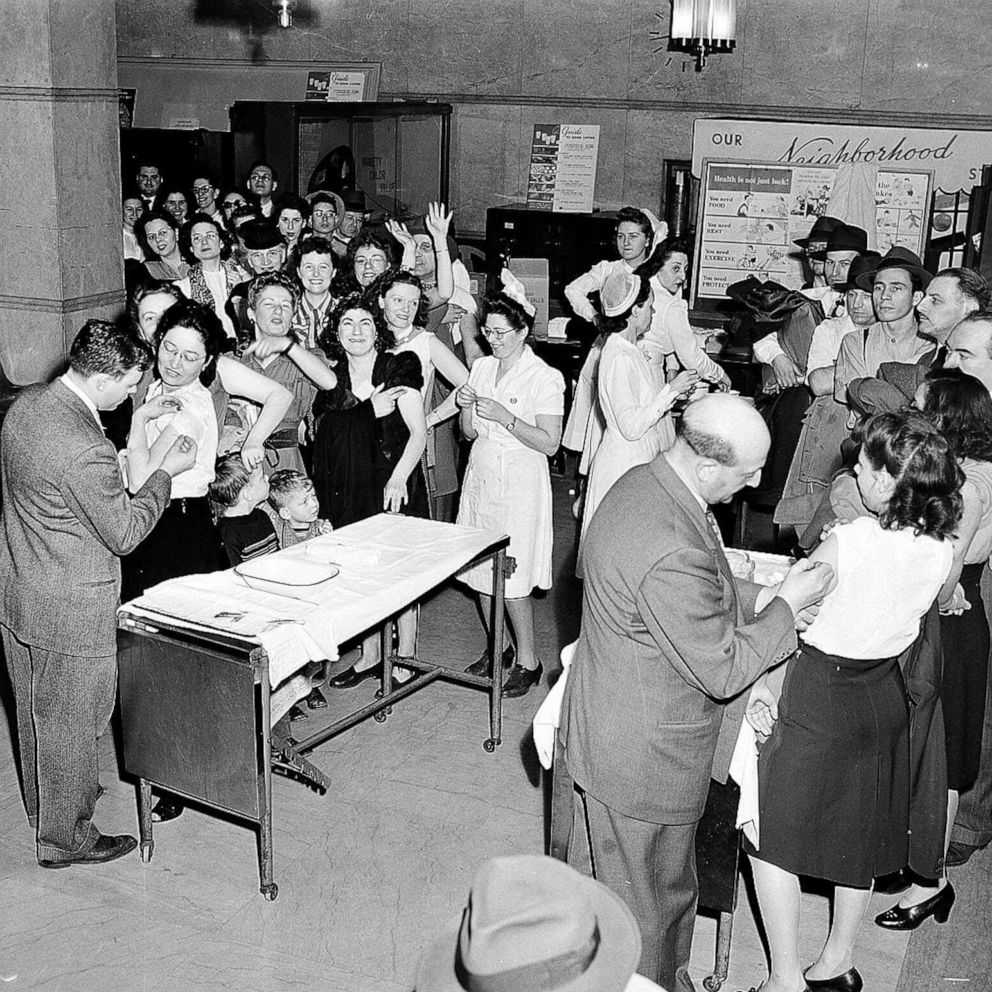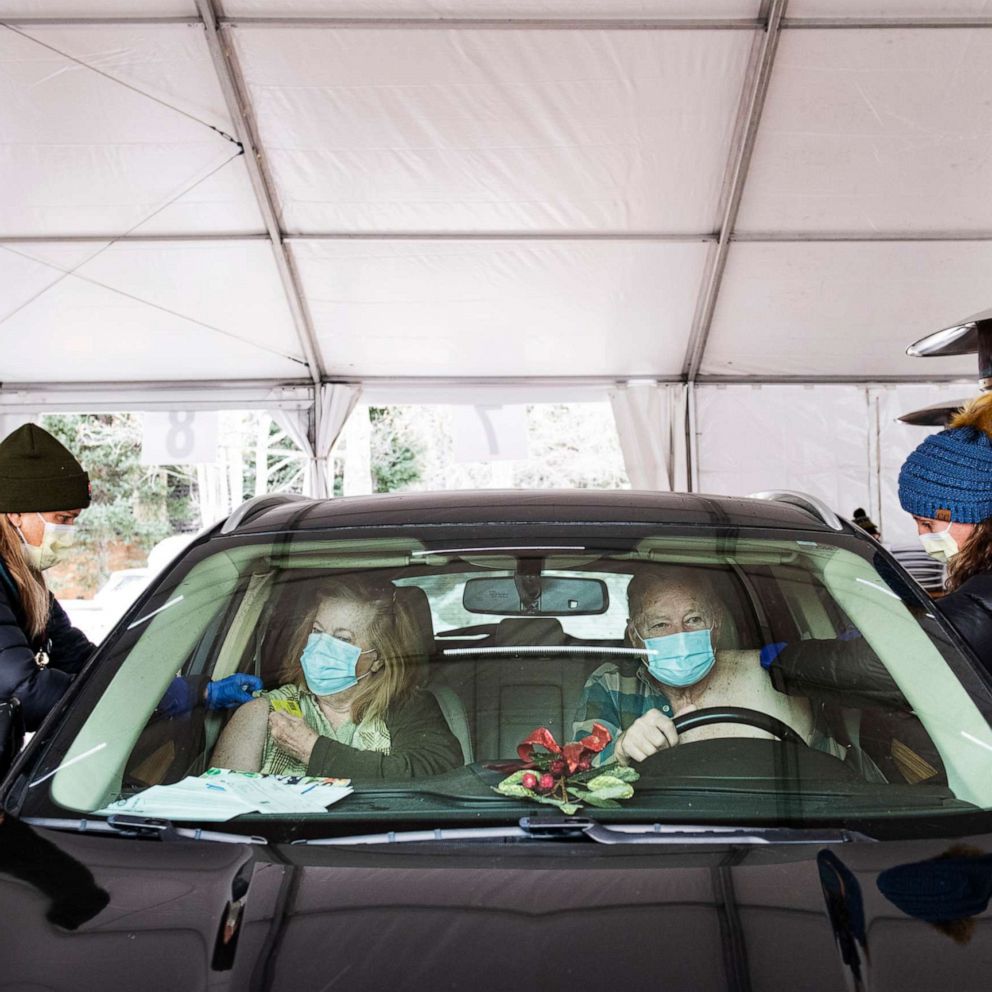New York expands vaccine eligibility, supply remains persistent issue
People with cancer and diabetes now qualify for vaccines.
New York state residents with high-risk health conditions are eligible to get vaccinated starting Monday, but limited vaccine supply could make it hard to get a shot.
In addition to the 7 million New Yorkers already eligible for vaccination, including health care workers and people 65 years old and older, 3 million people in the state have conditions that could put them at risk for severe COVID-19 sickness and death, bringing the total number of eligible people to 10 million.
"We remain locked in a footrace between the infection rate and the vaccination rate," Gov. Andrew Cuomo said in a statement Sunday. "We have the infrastructure in place to get it administered quickly and fairly but continue to only be held back by the supply."

The federal government is increasing weekly supply by 20% over the next three weeks, according to Cuomo, but New York's eligible population far exceeds those additional vaccines.
"New Yorkers are encouraged to remain patient and are advised not to show up at vaccination sites without an appointment," Cuomo added.
New York state has administered 90% of the first doses it has received, according to the governor's office.
In order for people with high-risk conditions to get a shot in New York, they'll need to bring a doctor's letter, a signed certification or other medical document showing they have a qualifying condition to their vaccine appointment. In New York, qualifying conditions include cancer, diabetes, liver disease, heart conditions, severe obesity, Alzheimer's disease and pregnancy, among others.
As of Sunday, New York had administered 15,037 doses per 100,000 people, according to the Centers for Disease Control and Prevention, which puts it toward the middle of the pack among state rollouts. By comparison, West Virginia, which has had one of the fastest rollouts, had administered 21,571 doses per 100,000 people.
What to know about the coronavirus:
- How it started and how to protect yourself: Coronavirus explained
- What to do if you have symptoms: Coronavirus symptoms
- Tracking the spread in the U.S. and worldwide: Coronavirus map
Tune into ABC at 1 p.m. ET and ABC News Live at 4 p.m. ET every weekday for special coverage of the novel coronavirus with the full ABC News team, including the latest news, context and analysis.







